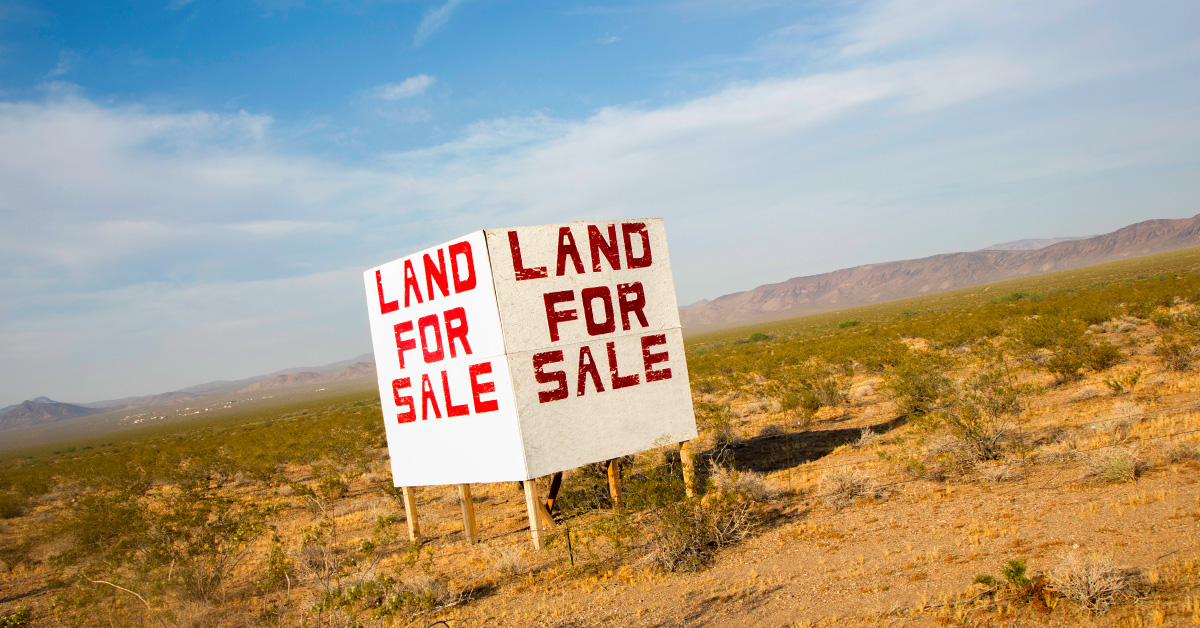Never Ignore These Red Flags in Real Estate

Unfortunately, the more practices the title industry develops to deter real estate fraud, the more creative the fraudsters become. Vacant land or nonowner-occupied fraud is currently the fastest-growing fraud type in the United States. If you are new to the industry and aren’t sure how this type of fraud works, this is the typical pattern.
How Vacant Land Fraud Works
- Fraudster searches the public records to identify real estate that is free of mortgages or other liens, typically vacant land or rental properties
- Fraudster obtains the identity of the landowner via public records
- Posing as the landowner, the fraudster contacts a realtor and “lists” the property. Typically, all communications are via email or text, not in person.
- The property is priced to sell quickly
- The fraudster accepts a far lower offer in cash
- The fraudster requests and chooses their own mobile notary. They then function as their own notary and falsify the documents.
- The transaction closes and the money wires to the fraudster
The best way to stop this type of real estate fraud is to watch diligently for red flags and put office practices in place to confirm seller identity on all vacant land or nonowner-occupied property.
Red flags that may give away real estate fraudsters include:
- No outstanding mortgages, free and clear property
- Vacant land or nonowner occupied
- Seller in a rush to close
- Real estate agent, hired by email, never meets with principals
- Seller only wants to communicate via email or text
- Sale documents emailed to the seller with no in-person closing or use of RON
- Typographical errors and non-matching signatures are common
- The owner is not currently located at the owner’s address listed in the county’s tax records
- Wiring instructions use banks not located in the owner’s country of residence (as shown in county’s tax records) and/or list third-party payee/account owner
- Documents sent to the title company are already executed without prior inquiry on how they should be completed and acknowledged
What’s the best way to combat real estate fraud on vacant land or nonowner-occupied property?
One of the best ways to combat this scheme is a confirmation/thank-you letter. Send it by regular mail directly from the title agent to the seller at the address for the seller shown in the county’s records (tax office). Do not send it to the subject property address or the seller’s address stated in the sales contract or provided by the open order email.
The letter should include a request that the recipient contact the closing office immediately to confirm the details of the transaction. This will ensure a callback allowing you to confirm that you are dealing with the true owner. Sadly, sometimes the tax office changes their records without confirming it is the true owner making the changes – fraudsters have of course exploited this. That doesn’t mean you should stop sending the letters, it just means you can’t rely solely on them.
Other best practices to combat vacant land fraud and other real estate fraud:
- Notary acknowledgments not done in your local office are suspect. Slow down and really look at them. Require a vetted mobile notary or a RON signing on a Stewart-approved platform.
- Talk to the listing real estate agent or REALTOR® and ask them what their communication with the seller has been like. Did they verify their identity in any meaningful way? Do they personally know the seller?
- Contact the seller by phone and ask them random questions about the property that only the true owner would know.
- Ask the seller for their original closing statement or title policy or their tax bill. Such documents are not in the public record; only the actual owner would have them.
- Compare the seller’s signature with their signature on previously recorded documents.
- Use identity-confirming software (such as CertifID) to confirm the seller's identity and wire instructions.
Finally, one last thought: Trust your gut. In many fraud claims, someone involved with the transaction will say, “I knew something seemed off.” Never ignore red flags. If you feel like something is “off,” pursue it until you get comfortable.
#### For more information on real estate fraud prevention, check out these Stewart Virtual Underwriter bulletins:
SLS2021007 CLAIMS AVOIDANCE - Fraudulent Land Sale Scheme
SLS2022004 CLAIMS AVOIDANCE - Fraudulent Land Sale Prevention
SLS2023003 CLAIMS AVOIDANCE - Fraudulent Land Sales and Prevention
Looking for more tips? Contact your local Stewart Title office or agency representative to learn more about our resources to help prevent real estate fraud and check out these Insights articles:
Underwriting for Cash Real Estate Transactions
Staying Ahead of Seller Impersonation Fraud
Eerie Warnings to Heed: A List of Threats Lurking in Real Estate Transactions
